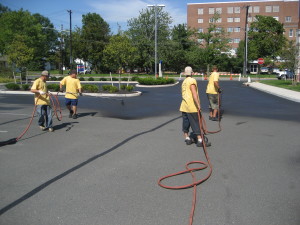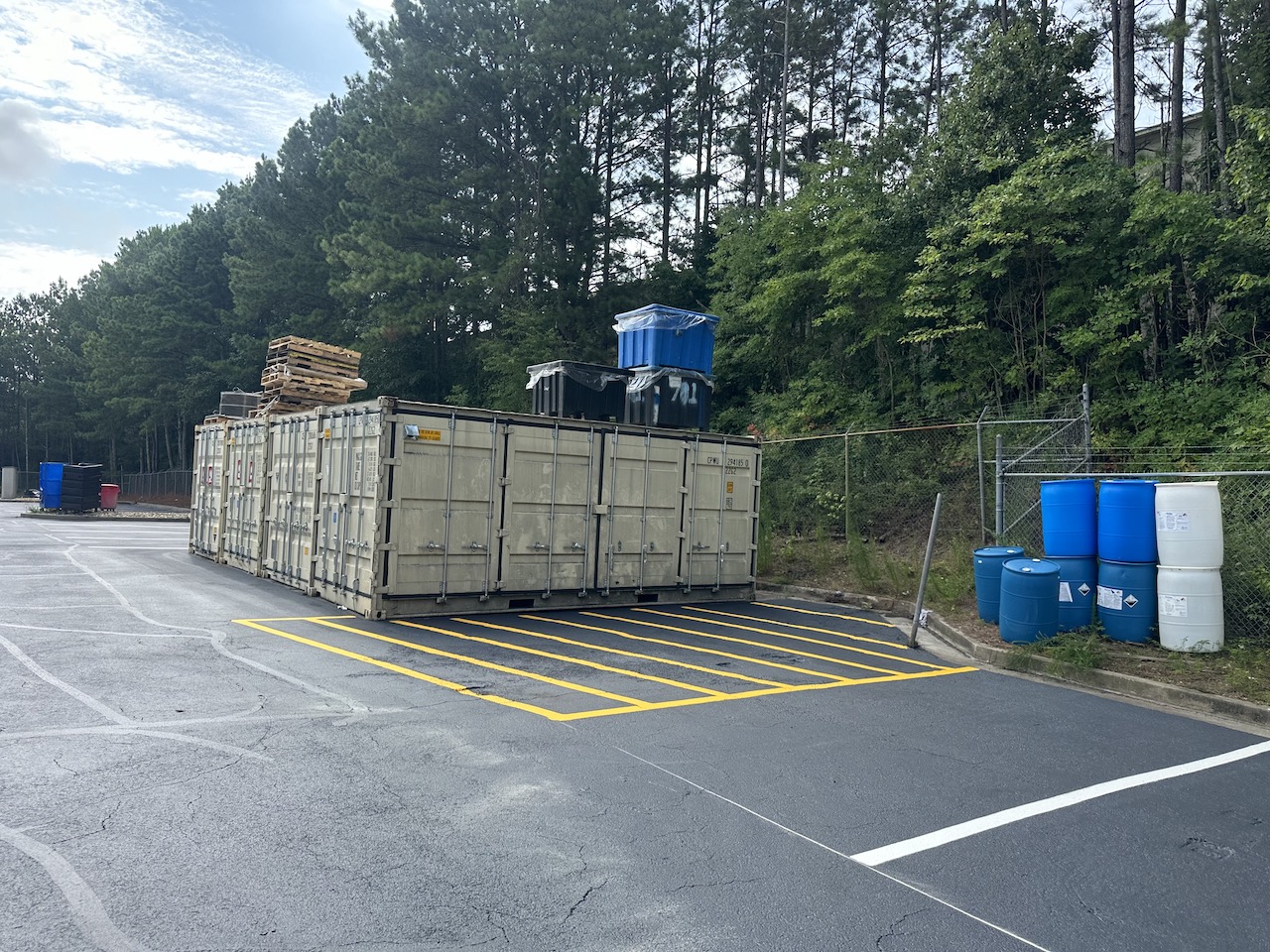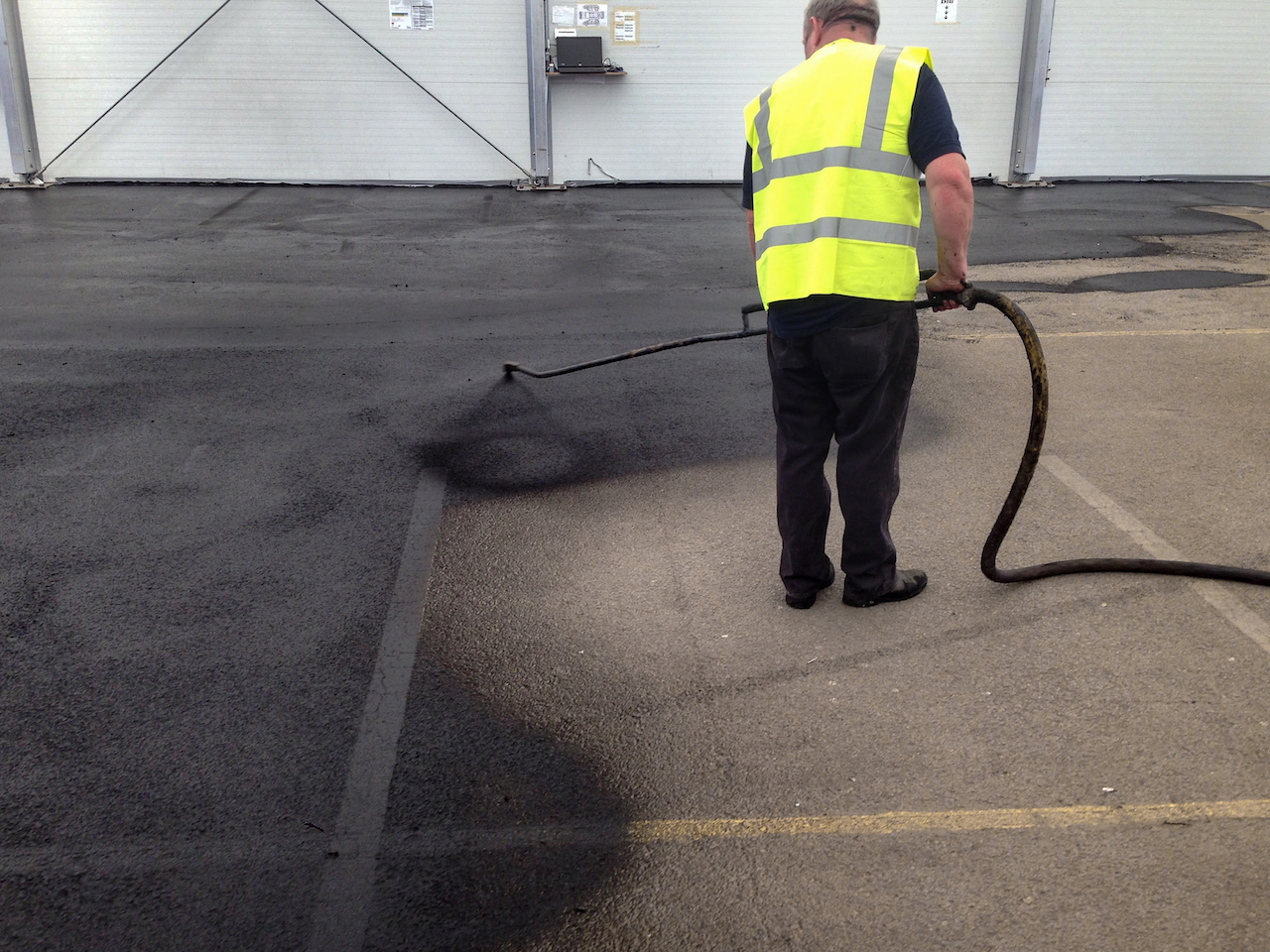
How Do Heat, Rain, and UV Rays Affect an Asphalt Pavement?
Asphalt pavement is a highly flexible material that expands and contracts when temperatures fluctuate. It also flexes under loads and rebounds quickly. At least, these are the properties that a healthy asphalt pavement with a stable foundation should have. However, UV rays steal moisture from the binder that keeps the pavement glued together. The pavement becomes brittle and loses its flexibility. Cracks can develop quickly that allow rain to enter. The water travels down through the pavement, leading to an eroded, destabilized foundation that can no longer rebound from the weight of traffic. Sinkholes or potholes can form, and large areas of the pavement can experience alligator cracking.
What Other Problems Can Summer Weather Cause for Asphalt Parking Lots?
The same UV rays that dry and fade your asphalt pavement can also fade your parking lot striping and pavement markings. Although most customers try to schedule their striping and marking at the same time as their asphalt sealing, an especially brutal summer may mean that you need to at least have your paint refreshed in certain areas. This is particularly critical for markings that denote handicapped parking spaces, pedestrian crosswalks, important warnings, and no-parking zones. You may also find that your traffic signs have faded to the point that they lack the necessary visibility to convey their information as quickly and clearly as they should. One other point that you should consider is that the tires on the vehicles entering your parking lot will likely be much hotter than your pavement. Unprotected asphalt pavements, especially if they have soft spots caused by leaked automotive fluids or other damage, can have chunks of their surface torn away by vehicles driving across them.
What Are Some Ways to Protect a Pavement?
One highly effective way to keep your asphalt parking lot from incurring damage during a Georgia summer is to make sure that your sealcoating is in excellent condition. Sealants do not last forever, and the average parking lot in the Atlanta area needs a fresh application about every two years. When you call a reputable paving company to apply a sealant, the contractor will also make sure that there are no cracks or other openings that will provide water with an easy path to the foundation. However, you should not delay any needed parking lot repair until it is time for a sealant application. It is best to have significant cracks or other damage repaired as soon as possible. Ideally, your contractor should inspect for damage in the spring and again in the fall, and he should make repairs as needed.
When You Need Help With Your Asphalt Parking Lot, Trust the Experts at MH Greeson
The professionals at MH Greeson are highly skilled in all areas of asphalt paving, but we specialize in asphalt maintenance and repair for parking lots in the greater Atlanta area. Our services include sealcoating, parking lot striping and pavement marking, asphalt crack repair, and asphalt patching. We also install car stops, traffic signs, and bollards. We are known for our superior craftsmanship and our dedication to customer service. You can request a free quote by completing the online form or calling 770-335-2983.




